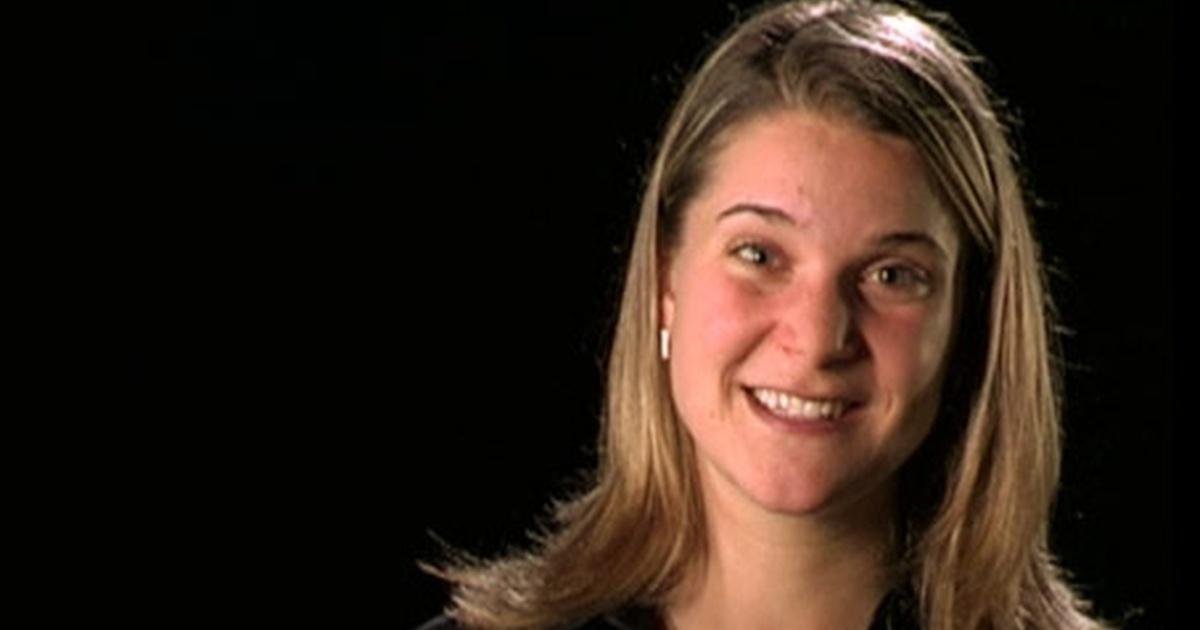Eva Vertes
Eva is a cancer researcher who is currently getting her M.D. at the University of Florida.

Meet cancer researcher Eva Vertes in these videos from NOVA's "The Secret Life of Scientists and Engineers." Eva studies how cancer arises, moves through the body, and resists therapy. She explains that after she won an international science fair as a teenager, she wanted to do more research.
“I’m a fierce competitor.”
Science:
Eva Vertes is a cancer researcher whose inspiration is her grandmother, a chemist who died at 44 from cancer.
Secret:
Eva is a long-distance runner who runs 30-35 miles per week, competing mostly against herself.
Monkeys with Ebola
Eva Vertes reads a book as a nine-year-old and begins a lifelong fascination with medicine.
Secret: Runner
Eva Vertes's geography teacher keeps her after school and she's been running ever since.
30 Second Science with Eva Vertes
We give Eva Vertes 30 seconds to describe her science and she asks "Was that really 30 seconds?"
10 Questions for Eva Vertes
We ask Eva Vertes 10 questions and find out that she was indeed called "Doogie."
Powerful motivation
When you’ve been a prodigy—as Eva Vertes has—age matters a little more than it does to us non-prodigy types. And one of the great things about being part of the SLoS team is that, even though Eva’s videos only run a total of about eight minutes, we actually got to interview her for more than two hours.
And while we were interviewing her, Eva told us stories relating to two specific ages—44 and 2.
Story #1: Eva is named after her grandmother, also Eva Vertes, a chemist who worked in a diabetes research laboratory. Eva told us that her grandmother “was very passionate about her research…and my grandfather says that there are lots of similarities between her and me. But at 44, she died of cancer of the stomach, so I never got to meet her.” Eva didn’t originally think that she’d switched from Alzheimer’s to cancer research because of her feelings for her grandmother. But she now believes “there is a connection there—in a way, maybe I am doing this partly for her.”
Watch all four of Eva’s videos above. Ask her your questions in the post below. And then be sure to check out her TED talk on her ideas about the future of medicine.
Ask Eva your questions
Q: Why did you not go to medical school directly after college?
Eva Vertes (EV): I decided to take two years between finishing undergraduate and beginning medical school to devote fully to medical research. I knew that I wanted to go to medical school during undergraduate, but I was also eager to get a significant amount of research experience.
Q: Why do scientists continue to think that one target/one drug will actually have an impact on cancer and other diseases?
EV: There seems to be a trend towards the search for, and use of, combination therapies. It is becoming clear that many diseases – especially cancer – are highly complex and may respond better to a multi-drug approach which targets many different aspects of a disease process. Therefore, scientists are trying to unravel which combination of therapies may work best for treating a certain disease, rather than searching only for a single “magic bullet”.
Q: I’m trying to get my students interested in science careers by encouraging them to think about what they like to do now and could continue that as an adult in a science career. What were your interests as a child?
EV: As a child, I was interested in animals (especially the “scary” ones such as sharks and snakes) and nature. When I was about 9 years old, I became very interested in the human body and diseases. In general, I was just curious about the world around me. I think that any sort of curiosity as a child is a good beginning to a career in science because science, at least to me, is a continuous exploration of the unknown.
Q: There are many studies showing that industrial and household chemicals cause cancer. Risks are not so much personal, as social and economic. Researching treatment is fine, but why is not more effort being made to implement prevention?
EV: Prevention is a very important part of solving the problem of cancer. We are beginning to realize that many things play a role in the initiation and progress of cancer. Clear identification of what exactly causes or increases the chances of cancer are necessary to implement effective preventative measures.


